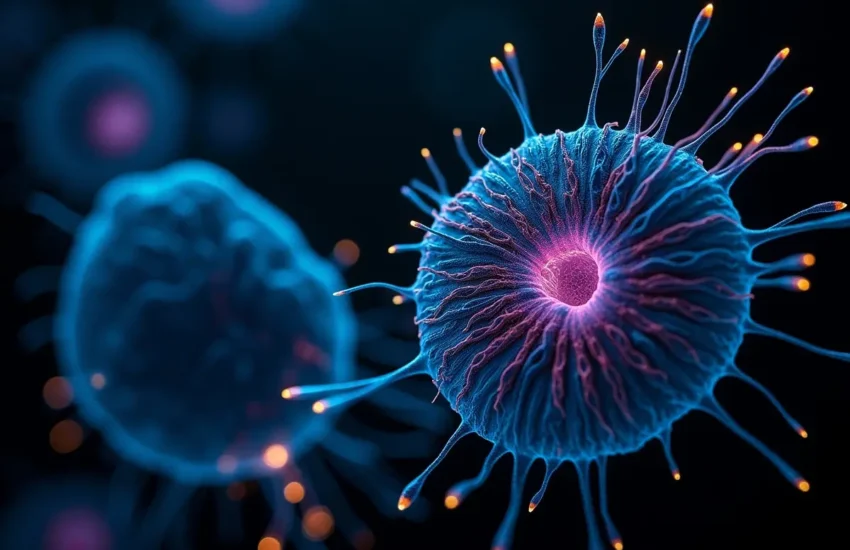How to Recognize Signs of Common Mental Disorder in Teens
Around 13% of children between 10-19 years old suffer some form of mental disorder.
Teens are going through many changes. They’re discovering who they are, and the hormones in their bodies are raging, which can make them moody.
However, some mental disorders are so impairing they can interfere with your teen’s school, family, or social life. If you become concerned that your teen might be experiencing some form of mental health disorder, you should get in contact with a mental health professional specializing in psychiatry, psychology, or other tailored mental health support to make sure the problem doesn’t get worse.

Read on to discover signs of common mental disorders in teens.
Mood Swings
Mood swings are among the most common mental health issues found in teens. Someone with a mental health disorder experiences changes in their mood that can affect how they think, feel, and interact with others.
Signs of mood swings in teens may include extreme highs or lows in emotions, often with no obvious cause for the change. They may appear suddenly or gradually and without warning.
Withdrawal From Friends and Family
Teens who are suffering from depression, anxiety, or other disorders may isolate themselves. They may it difficult to connect with family members or their usual social circles. They may even avoid or refuse to attend social gatherings, not want to visit family and cancel social plans.
Loss of Interest in Favorite Activities
Loss of interest in favorite activities is a common symptom of mental disorder in teens. It’s important to pay close attention to any changes in their usual behavior.
If they stop enjoying activities they once did, this could be a sign of mental health issues. They may no longer show interest in sports, art, music, or extracurricular activities they once loved doing.
It might manifest as boredom or apathy, constantly wanting to stay at home or isolate themselves. They may even show a deep disinterest and disengagement in activities they used to enjoy.
If they show these behaviors, it’s essential to address and monitor them to make sure that they are mentally stable. Compassionate communication, plenty of support, and professional help if needed can help teens get back on track.
Fatigue
Fatigue is one of the most common signs of a mental disorder in teens. They may experience incredibly low energy, a lack of motivation, or difficulty raising their mood. This kind of fatigue may cause them to be irate, have difficulty concentrating, and suffer from knowledge retention.
Increased Physical Complaints
Signs of common mental disorders in teens can often manifest themselves in physical complaints. You need to notice when your teen complains of chronic pain, digestive problems, headaches, or other physical issues. It could be an indication of a larger mental health concern.
But it can be difficult to determine if the physical symptoms are due to mental health issues. So it is still important to talk to the teen to further explore their symptoms. If the teen is labeling the physical issues as symptoms of depression or anxiety, seek professional help.
Nonstop Talking
Nonstop talking can be a sign of a common mental disorder in teens. It is especially common in teenagers who are prone to excessive worry and anxiety. If your teen is talking more than normal and it seems like it never stops, this can be a sign that something deeper is going on.
Excessive Worry
Excessive worry is a common sign of mental disorders in teens. Such worries can manifest in various forms. This includes intrusive thoughts, catastrophic thinking, and an inability to control their worries.
Teens who exhibit such signs may withdraw from social activities, or spend an excessive amount of time in silence worrying. They may seem unusually irritable or sad. They may start missing classes, fail to complete assignments or perform poorly in school due to their worries.
Declining Grades
Declining grades are one of the most common signs of mental disorder in teens. While it is normal for teens to experience setbacks in academic performance, significant drops in grades can be cause for concern.
Abrupt changes in study habits can be an early sign of mental health issues. Your teen who has been a high-achieving student might suddenly study less and perform poorly.
Poor Hygiene
Poor hygiene is a sign that may indicate a mental health disorder such as depression. You need to observe if your teen is neglecting basic hygiene, such as not brushing their teeth or hair, and not changing clothes. These are all signs that your child’s mental wellness is suffering.
A lack of self-care can also suggest that a teen is neglecting their mental health. So you need to check if a teen’s hygiene habits have drastically changed, such as suddenly neglecting to take care of themselves.
Inconsistent Sleeping Habits
Inconsistent sleeping habits is often an indication of common mental disorder in teens. Yes, it is normal for teens to experience a lack of sleep occasionally. But continual, unprompted late nights or sleeping in late can be a sign of a greater underlying mental health issue.
So you should look out for your teen’s sleep patterns. You have to know if there is a significant deviation from what has usually been the norm. Any irregular changes in the pattern may be a cause for concern and worth exploring further.
If you’re worried about your teen’s sleeping habits, consult with a mental health professional as soon as possible. Professionals can guide you on how best to handle teen depression.
Changes in Eating Habits
You need to be aware of any unexplained drastic changes in eating habits in your teen. This includes avoiding eating in public, binge eating late at night, or drastic increases or decreases in appetite. Obsessive behaviors like counting calories or arranging food on the plate in particular ways can also be cause for concern.
Other signs could include refusal to eat certain foods or excessive focus on the ingredients of what they are about to eat. Teens who develop strange food rituals, such as eating certain foods in a particular order, may also be experiencing mental issues.
As a parent, you need to pay attention to these subtle signs of eating disorders and reach out for help if necessary. The sooner these issues are addressed the faster teens can receive the appropriate support and treatment they need. The sooner you can also know if you need to put your teen in an eating disorder medical treatment.
Fluctuating Weight
You need to recognize these signs of mental health issues in teens. Noticeable changes in weight, such as rapid weight loss or gain, in a short amount of time, can be an indicator that something is wrong. Your teen may be eating more than usual or not being as active as they used to be.
Self-Medicating
Self-medicating is a common behavior in teens who are suffering from a mental disorder. This is often a means of coping with uncomfortable feelings or overwhelming thoughts.
This is a dangerous habit as teens who self-medicate often do not have the full knowledge of the drugs they are taking. They might experience side effects that could worsen their mental well-being. Or they may become dependent and addicted if they take drugs like pain medication.
Self-Harming
Self-harming is a sign of an underlying mental disorder and should be taken very seriously. So you should look out for key warning signs, such as cuts, burns, and bruises.
Teens may also engage in other forms of self-harming, such as punching walls. This can result in physical signs such as broken bones or swollen joints.
Additionally, teens who are self-harming may express strong feelings of hopelessness and worthlessness. They may display significant changes in their sleeping or eating patterns, or withdraw from their social circle. This is part of their attempt to emotionally self-harming.
If you notice these signs, you need to talk to your teen. You need to provide emotional and mental support if needed. Then, seek out professional help as soon as possible.
Drug and Alcohol Abuse
Drug and alcohol abuse is perhaps one of the most glaring signs of teen depression. By abusing drugs and alcohol, teens are trying to numb, cover-up, or change their feelings.
They are often using substances to cope with negative emotions and underlying feelings. This includes sadness, stress, loneliness, fatigue, and hopelessness.
When using drugs and alcohol, teens may become even more isolated from others and feel like they have nowhere else to turn. This can result in serious consequences down the line. So they may develop further social, physical, and psychological health issues.
That’s why teens must receive proper support and treatment to help them cope in healthier ways. If you suspect your teen may be depressed and using drugs or alcohol as a coping mechanism, seek help.
Watch Our For These Warning Signs of Common Mental Disorders in Teens
There is no single sign or symptom of a mental disorder in teens. But being able to recognize some of the warning signs of common mental disorders in teens can help you provide the support and guidance they need.
So take time to be aware and educated about these potential signs. This will ensure that the teens in your life have the best possible care.
And if you suspect that your teen may be suffering from a mental disorder, contact a mental health specialist.
Did you find this article helpful? If so, check out the rest of our site now.


